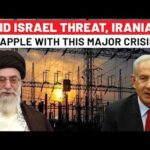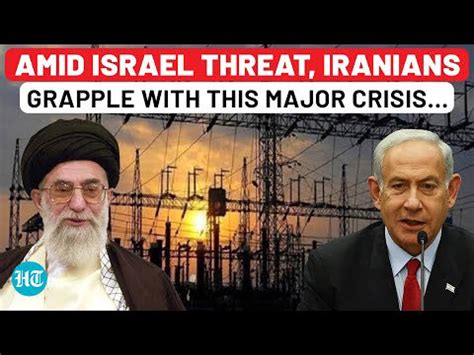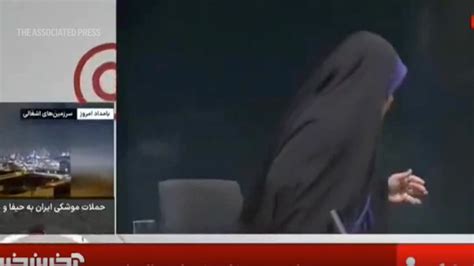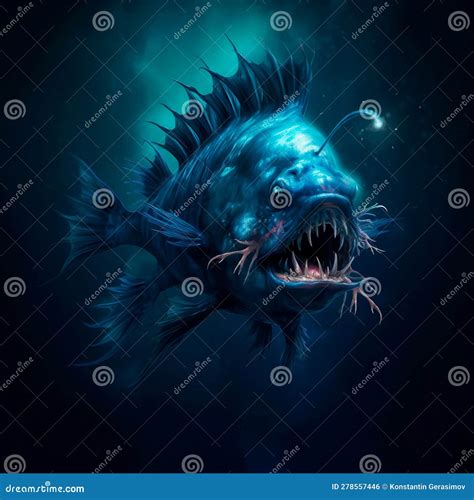
Italian Prime Minister Giorgia Meloni’s seemingly disdainful eye roll at French President Emmanuel Macron during a G7 summit side meeting has ignited a social media firestorm, drawing attention to perceived tensions between the two leaders. The incident, captured on video and widely circulated online, occurred as Macron appeared to whisper something to Meloni while leaders gathered for a group photo at the summit in Apulia, Italy.
The brief exchange, which lasted only a few seconds, has been interpreted by many as a sign of strained relations between Italy and France, particularly given their differing stances on various European and international issues. While the exact content of Macron’s whisper remains unknown, the video footage clearly shows Meloni responding with a pronounced eye roll before turning away. The gesture has quickly become a focal point for political commentary and speculation.
The Italian Prime Minister’s office has yet to release an official statement regarding the incident. Similarly, the Élysée Palace has remained silent on the matter, leaving room for varied interpretations and online discussions. This incident occurs against a backdrop of pre-existing disagreements between Meloni and Macron on issues ranging from immigration policy to economic governance within the European Union.
The video of Meloni’s eye roll has garnered millions of views across various social media platforms, with users offering their own analyses of the interaction. Some have argued that it reflects Meloni’s skepticism towards Macron’s leadership and his vision for Europe, while others have dismissed it as an insignificant moment blown out of proportion by social media.
Diverging Views and Policy Clashes
Meloni and Macron have publicly clashed on several policy fronts, most notably on migration and economic strategies. Meloni’s right-wing government has adopted a hardline stance on immigration, advocating for stricter border controls and tougher measures against illegal immigration. This contrasts sharply with Macron’s more centrist approach, which emphasizes international cooperation and shared responsibility in addressing migration challenges.
In the past, Meloni has criticized Macron’s proposals for greater EU fiscal integration, arguing that they could undermine national sovereignty and impose undue burdens on Italian taxpayers. She has also voiced concerns about the impact of EU regulations on Italian businesses, particularly small and medium-sized enterprises.
Conversely, Macron has indirectly criticized Italy’s economic policies, particularly its high levels of public debt and its reluctance to embrace structural reforms. He has also expressed concerns about the rise of populism and nationalism in Italy, warning against the dangers of protectionism and isolationism.
The G7 Summit Context
The G7 summit in Apulia brought together leaders from the world’s seven largest advanced economies to discuss a range of pressing global issues, including climate change, economic stability, and international security. The summit provided an opportunity for leaders to engage in both formal discussions and informal exchanges on the sidelines of the main agenda.
The incident between Meloni and Macron occurred during one of these informal gatherings, as leaders prepared to pose for a group photograph. While the context of the exchange is not entirely clear, it appears to have taken place in a relaxed and informal setting.
Despite the apparent tension between Meloni and Macron, both leaders participated in the summit’s official proceedings, contributing to discussions on key policy issues. The G7 leaders ultimately reached a consensus on a number of important commitments, including a pledge to accelerate efforts to combat climate change and to provide financial support for developing countries.
Social Media Reaction and Public Perception
The video of Meloni’s eye roll has generated a wide range of reactions on social media, with users offering their own interpretations of the incident. Some have praised Meloni for standing up to Macron, while others have criticized her for displaying a lack of respect for a fellow world leader.
Many social media users have also used the incident as an opportunity to comment on the broader political dynamics between Italy and France, highlighting the differences in their political ideologies and policy priorities. Some have suggested that the eye roll reflects a growing divide between nationalist and globalist forces in Europe.
Others have cautioned against reading too much into the incident, arguing that it is impossible to know the true meaning behind Meloni’s gesture without knowing the content of Macron’s whisper. They have also noted that political leaders often engage in subtle forms of nonverbal communication that can be easily misinterpreted.
Historical Context of Franco-Italian Relations
The relationship between France and Italy has historically been characterized by a mix of cooperation and competition. The two countries share a long and complex history, marked by periods of close alliance and periods of intense rivalry.
In recent years, Franco-Italian relations have been strained by a number of factors, including disagreements over migration policy, economic governance, and cultural identity. The rise of populist and nationalist movements in both countries has also contributed to the tensions.
Despite these challenges, France and Italy remain important partners in the European Union and share a common interest in promoting stability and prosperity in the region. The two countries cooperate closely on a range of issues, including defense, security, and trade.
Expert Analysis and Political Implications
Political analysts have offered varying interpretations of the Meloni-Macron eye roll incident. Some have suggested that it reflects a deeper trend of growing political polarization in Europe, with nationalist leaders like Meloni challenging the established order and questioning the authority of traditional European institutions.
Others have argued that the incident is primarily a matter of personal chemistry and that it does not necessarily reflect a fundamental shift in Franco-Italian relations. They have noted that Meloni and Macron have different leadership styles and that they may simply not see eye to eye on a number of issues.
Regardless of the underlying causes, the incident has the potential to further strain relations between Italy and France, particularly if it is perceived as a sign of disrespect or hostility. It could also embolden nationalist forces in both countries and contribute to a further fragmentation of the European Union.
The Future of Franco-Italian Relations
The future of Franco-Italian relations will depend on a number of factors, including the political landscape in both countries, the state of the European Union, and the broader geopolitical context. If Meloni and Macron are able to find common ground on key policy issues and to develop a more constructive working relationship, then the two countries may be able to overcome their differences and to work together to address shared challenges.
However, if the tensions between Italy and France continue to escalate, then the relationship could become increasingly strained, potentially undermining cooperation on important issues and contributing to instability in the region. The incident at the G7 summit serves as a reminder of the fragility of international relations and the importance of diplomacy and mutual understanding.
Frequently Asked Questions (FAQ)
1. What exactly happened between Giorgia Meloni and Emmanuel Macron at the G7 summit?
During a G7 summit side meeting in Apulia, Italy, French President Emmanuel Macron appeared to whisper something to Italian Prime Minister Giorgia Meloni as leaders gathered for a group photo. Meloni responded with a visible eye roll before turning away. The incident was captured on video and widely shared on social media.
2. What was the reason for Giorgia Meloni’s eye roll towards Emmanuel Macron?
The exact content of Macron’s whisper to Meloni remains unknown, and neither the Italian Prime Minister’s office nor the Élysée Palace has released official statements regarding the exchange. This has led to various interpretations, with some suggesting it reflects tensions over policy differences, while others dismiss it as a minor, overblown incident.
3. How have people reacted to the video of Meloni’s eye roll?
The video has gone viral, generating millions of views and a wide range of reactions. Some social media users have praised Meloni for standing up to Macron, while others have criticized her for a perceived lack of respect. Many have used the incident to comment on the broader political dynamics between Italy and France.
4. What are some of the main policy differences between Meloni and Macron?
Meloni and Macron have publicly disagreed on several policy fronts, including immigration and economic strategies. Meloni’s government has adopted a hardline stance on immigration, while Macron favors a more centrist approach with international cooperation. They also differ on EU fiscal integration, with Meloni expressing concerns about national sovereignty.
5. How might this incident affect future relations between Italy and France?
The incident has the potential to strain relations between Italy and France, particularly if it’s perceived as a sign of disrespect. It could embolden nationalist forces in both countries and potentially contribute to a further fragmentation of the European Union. However, the future of Franco-Italian relations depends on whether Meloni and Macron can find common ground and develop a constructive working relationship despite their differences.
Expanded Context and Analysis:
The seemingly innocuous eye roll between Giorgia Meloni and Emmanuel Macron at the G7 summit transcends a mere fleeting moment captured on video; it encapsulates the broader, often simmering tensions between two of Europe’s key political figures and reflects deeper fault lines within the European Union itself. To fully understand the significance of this incident, it’s crucial to delve into the historical context of Franco-Italian relations, the specific policy disagreements that divide Meloni and Macron, and the evolving political landscape of Europe.
A History of Complex Relations:
France and Italy, despite sharing a border, a common cultural heritage rooted in Roman civilization, and membership in numerous international organizations, have a history marked by both cooperation and competition. During the Renaissance, Italian city-states exerted considerable influence on French art, literature, and political thought. The Napoleonic era saw French dominance over much of the Italian peninsula, leading to both inspiration for Italian unification and resentment of French control.
In the 20th century, the two nations were allies in both World Wars, albeit with Italy initially siding with the Central Powers before switching allegiances. The post-war period saw them as founding members of the European Economic Community, collaborating on issues of trade, agriculture, and security. However, even within the European project, tensions have arisen, particularly concerning economic policy and national sovereignty.
Points of Contention: Policy and Ideology:
The current dynamic between Meloni and Macron is shaped by their fundamentally different political ideologies and policy priorities. Meloni, representing a right-wing nationalist perspective, prioritizes national sovereignty, border control, and traditional values. Her government has taken a firm stance against illegal immigration, advocating for stricter border enforcement and repatriation policies. This directly contrasts with Macron’s more centrist and internationalist approach, which emphasizes European integration, multilateralism, and a more nuanced approach to immigration.
Economically, Meloni has expressed skepticism towards further EU fiscal integration, fearing that it could erode Italy’s economic independence and burden Italian taxpayers. She has also been critical of EU regulations perceived as hindering Italian businesses. Macron, on the other hand, champions greater European economic coordination and structural reforms to enhance competitiveness and fiscal stability.
Specific policy disagreements include:
- Migration: Italy, as a frontline state in the Mediterranean, has consistently called for greater burden-sharing from other EU members in managing migrant flows. Meloni has criticized the EU’s migration policies as inadequate and ineffective. Macron, while advocating for European solidarity, has also emphasized the need for stricter border controls and repatriation of rejected asylum seekers.
- Economic Governance: Italy’s high public debt and persistent economic challenges have been a source of concern for other EU members, including France. Macron has indirectly criticized Italy’s economic policies, urging Rome to implement structural reforms and reduce its debt burden. Meloni has defended Italy’s fiscal policies, arguing that they are necessary to stimulate economic growth and protect Italian jobs.
- EU Reform: Meloni has expressed reservations about the direction of EU integration, advocating for a more intergovernmental approach that respects national sovereignty. Macron, in contrast, is a strong proponent of deeper EU integration, including reforms to the Eurozone and the establishment of a more centralized European defense policy.
The Evolving European Landscape:
The Meloni-Macron dynamic is also influenced by the broader political landscape of Europe. The rise of populist and nationalist movements across the continent has challenged the traditional center-left and center-right parties that have dominated European politics for decades. Meloni’s electoral success in Italy is part of this trend, reflecting a growing disillusionment with mainstream politics and a desire for more nationalistic policies.
Macron, as a leading voice of the European center, finds himself increasingly at odds with nationalist leaders like Meloni. The clash between their ideologies and policy priorities reflects a deeper division within Europe between those who advocate for greater integration and those who prioritize national sovereignty.
The G7 Summit: A Stage for Subtle Diplomacy:
The G7 summit, while primarily focused on addressing global economic and security challenges, also provides a stage for subtle diplomatic maneuvering and the expression of underlying tensions. The incident between Meloni and Macron, though seemingly minor, occurred in this context, highlighting the challenges of building consensus and fostering cooperation among leaders with divergent political views.
The fact that the incident was captured on video and quickly went viral underscores the increasing importance of social media in shaping public perceptions of political leaders and international relations. The instant dissemination of the video allowed for widespread speculation and interpretation, further amplifying the significance of the seemingly innocuous eye roll.
Potential Implications for Franco-Italian Relations and the EU:
The Meloni-Macron incident, while perhaps not a watershed moment, has the potential to further strain relations between Italy and France. If the two leaders are unable to find common ground and develop a more constructive working relationship, it could undermine cooperation on important issues such as migration, economic policy, and security.
More broadly, the incident reflects the challenges facing the European Union as it grapples with internal divisions and the rise of nationalist sentiment. The clash between Meloni and Macron highlights the need for greater dialogue and compromise among EU member states to address shared challenges and maintain unity.
Navigating a Complex Future:
The future of Franco-Italian relations and the broader European project will depend on the ability of leaders like Meloni and Macron to navigate these complex challenges. Finding common ground on key policy issues, respecting national sovereignty while promoting European integration, and fostering a spirit of cooperation and mutual understanding will be essential to ensuring stability and prosperity in the region.
The eye roll at the G7 summit serves as a reminder of the fragility of international relations and the importance of diplomacy, communication, and a willingness to bridge ideological divides. It also underscores the need for critical analysis of seemingly minor events, as they can often reflect deeper underlying tensions and have significant implications for the future.
Further Considerations:
- The Role of Nonverbal Communication: The incident highlights the importance of nonverbal communication in international relations. Body language, facial expressions, and gestures can convey messages that are often more powerful than words. Understanding the cultural nuances of nonverbal communication is crucial for effective diplomacy.
- The Impact of Social Media: The rapid dissemination of the video on social media demonstrates the power of digital platforms to shape public perceptions of political events. Social media can amplify tensions, spread misinformation, and influence political discourse.
- The Need for Context: It is important to interpret political events within their broader historical, political, and social context. The Meloni-Macron incident should be understood in the context of Franco-Italian relations, the rise of populism in Europe, and the challenges facing the European Union.
- The Importance of Dialogue: The incident underscores the need for ongoing dialogue and communication between political leaders to address misunderstandings, bridge ideological divides, and foster cooperation.
In conclusion, the eye roll heard ’round the G7 is more than just a fleeting moment of interpersonal tension; it’s a symptom of deeper divisions within Europe and a reminder of the challenges of navigating a complex and rapidly changing global landscape. Understanding the historical context, the policy disagreements, and the evolving political landscape is essential for interpreting the significance of this incident and its potential implications for the future of Franco-Italian relations and the European Union. The event serves as a catalyst for deeper reflection on the state of international diplomacy, the impact of social media on political discourse, and the ongoing need for dialogue and cooperation in a world increasingly characterized by division and uncertainty.









